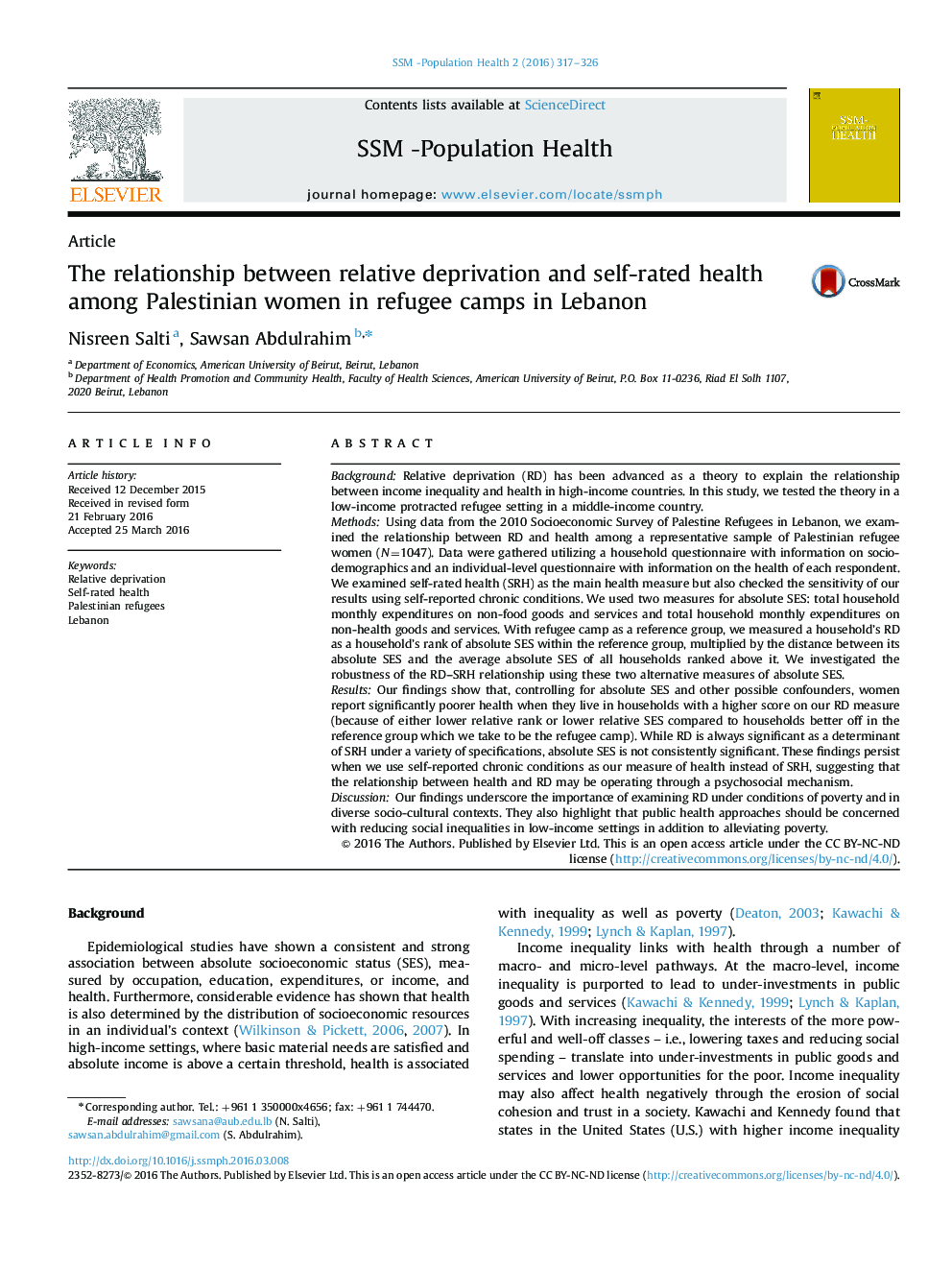| کد مقاله | کد نشریه | سال انتشار | مقاله انگلیسی | نسخه تمام متن |
|---|---|---|---|---|
| 1092336 | 1487260 | 2016 | 10 صفحه PDF | دانلود رایگان |
• RD is an explanatory pathway in the relationship between income inequality and health.
• We investigated RD among women in Palestinian refugee camps in Lebanon.
• Women report poorer health when they live in households with a higher RD score.
• Evidence points to the importance of reducing social inequalities in deprived settings.
BackgroundRelative deprivation (RD) has been advanced as a theory to explain the relationship between income inequality and health in high-income countries. In this study, we tested the theory in a low-income protracted refugee setting in a middle-income country.MethodsUsing data from the 2010 Socioeconomic Survey of Palestine Refugees in Lebanon, we examined the relationship between RD and health among a representative sample of Palestinian refugee women (N=1047). Data were gathered utilizing a household questionnaire with information on socio-demographics and an individual-level questionnaire with information on the health of each respondent. We examined self-rated health (SRH) as the main health measure but also checked the sensitivity of our results using self-reported chronic conditions. We used two measures for absolute SES: total household monthly expenditures on non-food goods and services and total household monthly expenditures on non-health goods and services. With refugee camp as a reference group, we measured a household’s RD as a household’s rank of absolute SES within the reference group, multiplied by the distance between its absolute SES and the average absolute SES of all households ranked above it. We investigated the robustness of the RD–SRH relationship using these two alternative measures of absolute SES.ResultsOur findings show that, controlling for absolute SES and other possible confounders, women report significantly poorer health when they live in households with a higher score on our RD measure (because of either lower relative rank or lower relative SES compared to households better off in the reference group which we take to be the refugee camp). While RD is always significant as a determinant of SRH under a variety of specifications, absolute SES is not consistently significant. These findings persist when we use self-reported chronic conditions as our measure of health instead of SRH, suggesting that the relationship between health and RD may be operating through a psychosocial mechanism.DiscussionOur findings underscore the importance of examining RD under conditions of poverty and in diverse socio-cultural contexts. They also highlight that public health approaches should be concerned with reducing social inequalities in low-income settings in addition to alleviating poverty.
Journal: SSM - Population Health - Volume 2, December 2016, Pages 317–326
